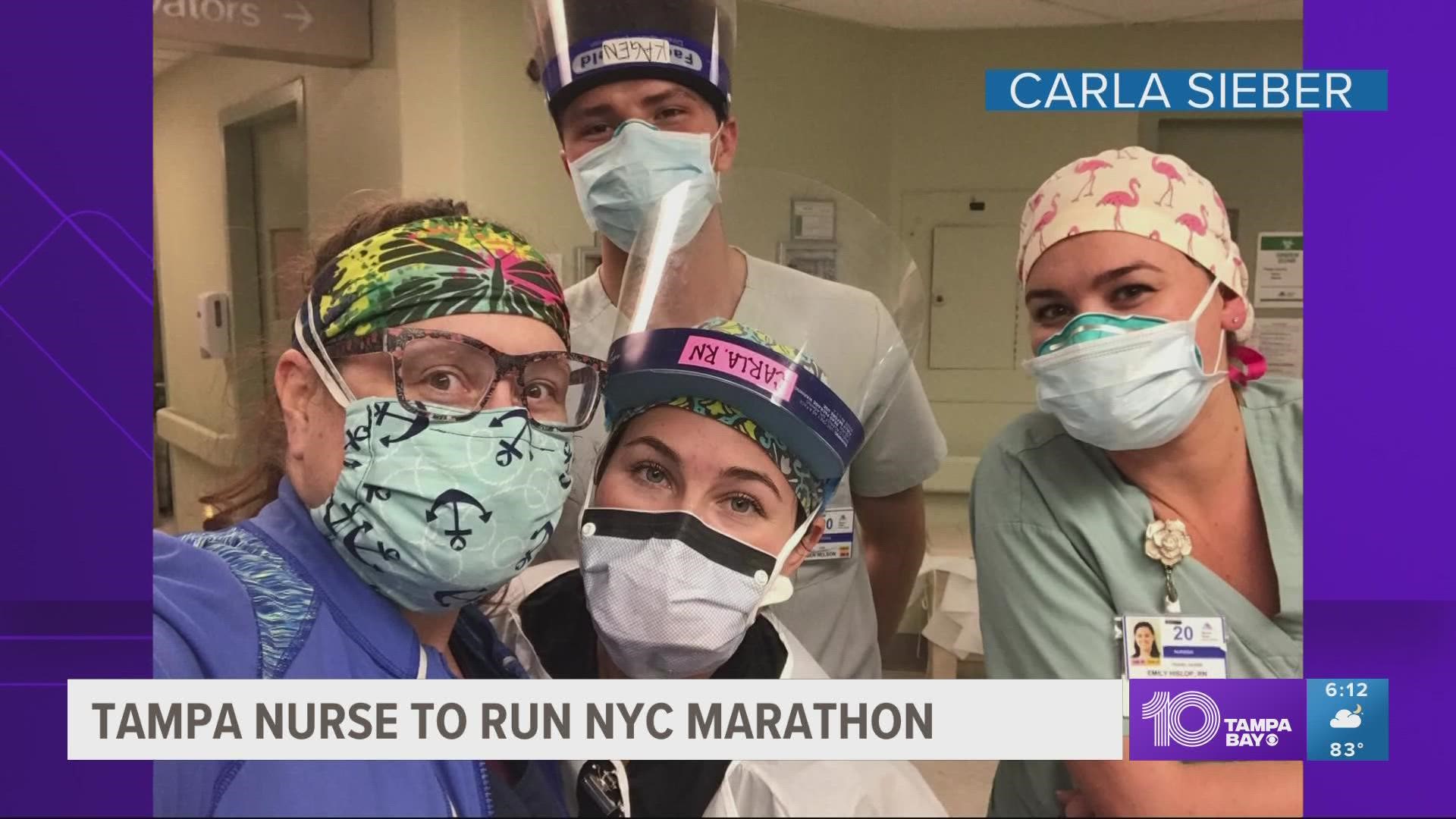NEW YORK CITY, N.Y. — It may feel like ages ago now. But when the COVID-19 pandemic was at its height, medical providers across the country were working around the clock and were outnumbered by the patients who piled into ICUs.
The world watched as New York City became the pandemic's epicenter. Data compiled by the New York Times says 42,901 people have died of COVID-19 in New York City.
When hospitals were inundated with patients and morgues were full, it was the doctors and nurses who stepped up day after day for long, hard shifts.
"I want to go, I want to help," Carla Sieber said. "I felt bad. I remember scrolling Instagram and watching the videos of the nurses. And I was crying."
Sieber is a critical care nurse practitioner. She graduated in December 2019. Just months later, the country shut down in response to the spread of the coronavirus. Sieber decided to go to the hardest hit area and strap on her PPE (personal protective equipment).
It took Sieber less than two days to find a recruiter filling nursing roles in NYC, get a job, and be on a flight.
"This is new. It's scary. We see people dying," Sieber recalled before making the decision to work in NYC. "So I felt like, you know, they didn't need me here. And so I was like, this is perfect timing for me to go up there and help out."
Sieber worked 14 shifts over two and a half weeks when New York City was at its peak number of cases and deaths in April, going into May. She worked in the ICU at Mount Sinai Beth Israel Hospital. Sieber said the staff of nurses and doctors had to make do with what they had to treat patients because it was all they had.
"The hospital I was in was actually built in the 1800s," Sieber explained. "And they were getting ready to tear the building down that summer. So the building had been vacant. They hadn't had patients in it. I believe it had been since like 2015, maybe 2017. It's been a couple of years, completely empty. We had to you know, find beds... Some of the areas we had patients in tarps in the hallways with zippers and are like 'this is the best we can do.' It's a space we can put a person to try and help them so that's what we did."
Two and a half years later, Sieber is going back to NYC. However, it's not the same city she saw two years ago.
"The last time I was here was in April of 2020," she said. "When the world was shut down. There was nobody out. If you were out a lot of times, people were being questioned [about] where they were out and where they were going. And it was just a very eerie feeling to walk around here and not have the people because you're seeing these pictures of New York just with all the people and hustle and bustle and all the stuff going on all the time."
Sieber is returning to New York to run the NYC Marathon. She's an avid runner, but this will be her first attempt at a marathon.
"I found a charity spot that was accepting people," she said. "And so I'm running for the Brain Aneurysm Foundation."
According to its website, the foundation's mission is to, "promote early detection of brain aneurysms by providing knowledge and raising awareness of the signs, symptoms and risk factors. Work with the medical communities to provide support networks for patients and families, as well as to further research that will improve patient outcomes and save lives."
Sieber said that getting to run the marathon and do it for a cause important to her makes her weekend in New York all the more special.
"Just knowing you know what, what people went through out here, what the nurses went through up here, my own experience up here, and knowing all that and seeing how it's bounced back up here, things are getting back to normal," Sieber said.
Sieber said she'll be thinking about the frontline medical workers she was alongside during the pandemic while she's pushing herself to the end of the 26.2-mile race, as well as the people she can help with the charity she's running for.
"I'm remembering all of the staff that I encountered when I was up here, she said. "I think a lot of that stuff is really going to help get me through and just seeing the support of the city."
Sieber now works full-time at Tampa General Hospital as a critical care nurse. She worked in the ICUs during Tampa's spike in the COVID Delta variant.
The New York City Marathon begins at 8 a.m. on Sunday, Nov. 6.
Malique Rankin is a general assignment reporter with 10 Tampa Bay. You can email her story ideas at mrankin@10tampabay.com and follow her Facebook, Twitter, and Instagram pages.

